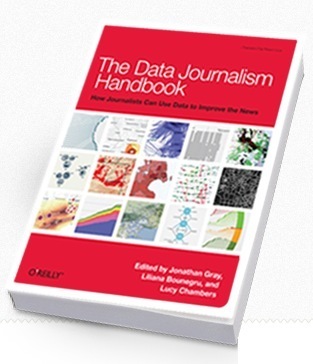Robin Good: Extracting meaning out of big data, illustrating and visualizing relationships and links between apparently disconnected items and approaching the gathering of information for the purpose of surfacing what otherwise would not be immediately evident, may all be commercially fertile areas as some of the pionerring examples seem to show.
From the original essay, part of the Data Journalism Handbook: "Many journalists seem to be unaware of the size of the revenue that is already generated through data collection, data analytics and visualization.
This is the business of information refinement.
With data tools and technologies it is increasingly possible to shed a light on highly complex issues, be this international finance, debt, demography, education and so on.
...These technologies can now be applied to journalism...
But how does this generate money for journalism?
The big, worldwide market that is currently opening up is all about transformation of publicly available data into something our that we can process: making data visible and making it human.
We want to be able to relate to the big numbers we hear every day in the news — what the millions and billions mean for each of us.
There are a number of very profitable data-driven media companies, who have simply applied this principle earlier than others. They enjoy healthy growth rates and sometimes impressive profits.
a) One example: Bloomberg. The company operates about 300,000 terminals and delivers financial data to it’s users. If you are in the money business this is a power tool. ... This core business generates an estimated US $6.3 billion per year, at least this what a piece by the New York Times estimated in 2008. As a result, Bloomberg has been hiring journalists left, right and centre, they bought the venerable but loss-making “Business Week” and so on.
b) Another example is the Canadian media conglomerate today known as Thomson Reuters. They started with one newspaper, bought up a number of well known titles in the UK, and then decided two decades ago to leave the newspaper business. Instead they have grown based on information services, aiming to provide a deeper perspective for clients in a number of industries. If you worry about how to make money with specialized information, the advice would be to just read about the company’s history in Wikipedia.
c) And look at the Economist. The magazine has built an excellent, influential brand on its media side. At the same time the “Economist Intelligence Unit” is now more like a consultancy, reporting about relevant trends and forecasts for almost any country in the world. They are employing hundreds of journalists and claim to serve about 1.5 million customers worldwide."
If you are still doubtful that big data, information refinement, news curation and specialized info services are areas where it is going to be tough to create revenues, think again.
Recommended. 9/10
Full essay: http://datajournalismhandbook.org/1.0/en/in_the_newsroom_10.html
Data Journalism Handbook: http://datajournalismhandbook.org/



 Your new post is loading...
Your new post is loading...







